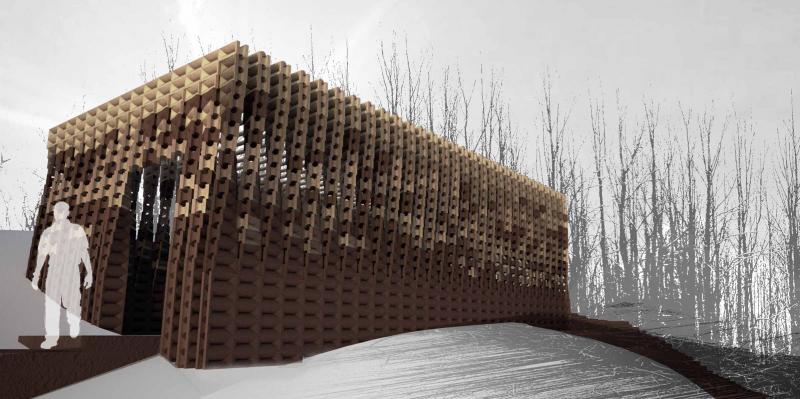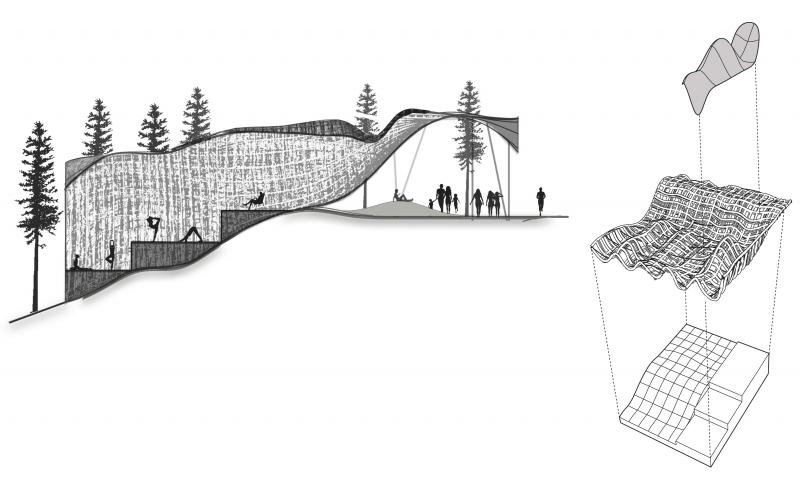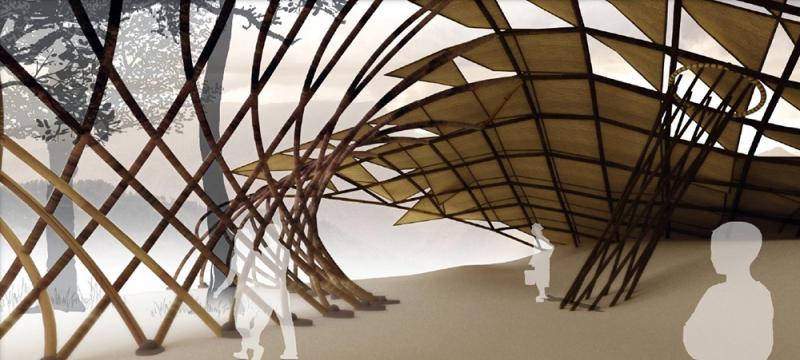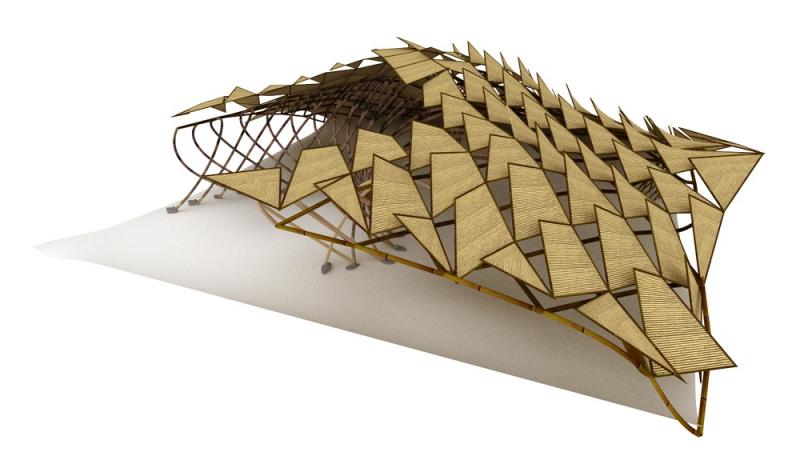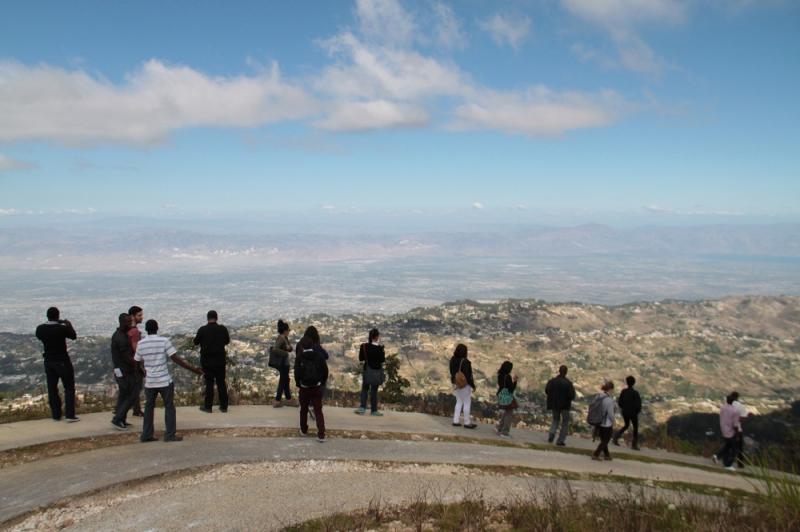Experimental Bamboo
“Dye mon, gen mon.” or “Beyond mountains, more mountains.”
This age old Haitian proverb has taken on a new meaning following the political, natural and economic factors which have afflicted the nation over the past century. However it was originally intended to describe the unique terrain of the Island nation of Haiti. The past century has seen the eradication of all but 2% of Haiti’s trees and bamboo is being increasingly grown as a solution not just in binding the exposed hillsides, but as a light weight material for construction.
The Haiti Visiting School uses this unique terrain as the setting for a design workshop which asks students to design a vision for bamboo architecture in Haiti. Working in small groups each team will be asked to design a bamboo campus for a hillside site in Kenscoff 12km South of Port au Prince.
Over the course of the ten day workshop students will be exposed to 3d modelling software and parametric programs which can test both the material characteristics and their response to the extreme seismic and climatic context of the site. Students will also be taught and expected to use representation programs such as Adobe Creative Suite to at the end of the course present their proposals in the a competition format to a panel made up of local designers, international architects and the local community.
The teaching staff will comprise of a formidable force of both local and international architects, engineers, artists and horticulturalists will form an impressive base of knowledge of local culture, bamboo material characteristics and 3d design software.
Some of the most prominent features which the participants will be exposed to during the course include:
Teaching team: The teaching staff comprises of working architects and graduates of all levels of the AA School. The tutor student ratio of 6:1 allows the opportunity to for students to directly engage with persons from all over the world whom have worked for some of the largest and most sought after architectural practices.
Software exposure: Students will be required to already have a basic knowledge of Rhinoceros. They will be able to supplement their 3D skill set with intensive workshops and regular exposure to advanced Rhinoceros, grasshopper, climatic analysis softwares, and presentation tools.
Competition format: Students will work in small groups to articulate the brief and map the site in an initial form finding exercise. These teams will be expected to develop these and present them in a professional competition manner to the potential client, local and international architects, local artists and community leaders.
Lecture series: To supplement the workshop a wide array of architectural and cultural lectures will be delivered by local professionals. This aims to embolden the students work with an architectural knowledge of bamboo and the local vernacular, as well as the history of this uniquely vibrant location and culture.
Cultural events: Visits to local artists’ studios, lectures by local artists about the history of and culture of Haiti as well as an opening night food and football event will give a lively introduction and context to the workshop.

